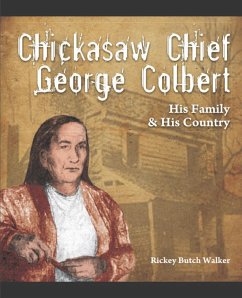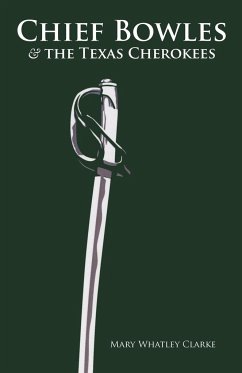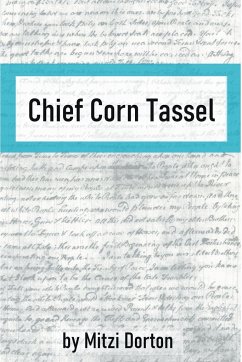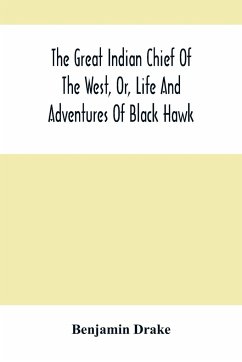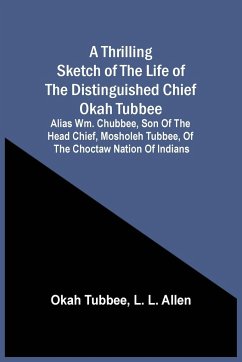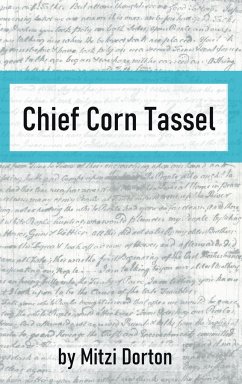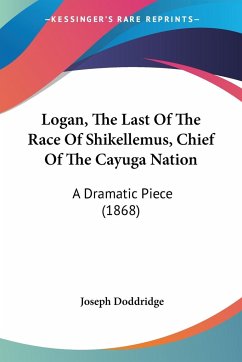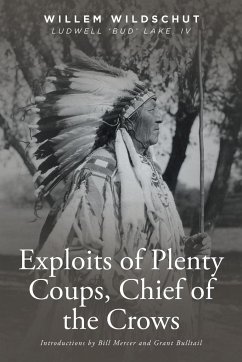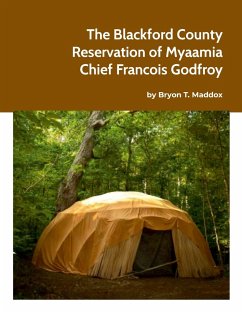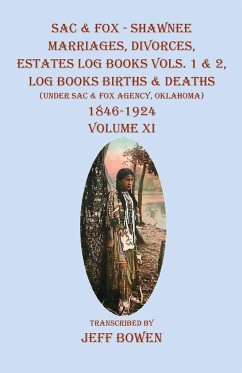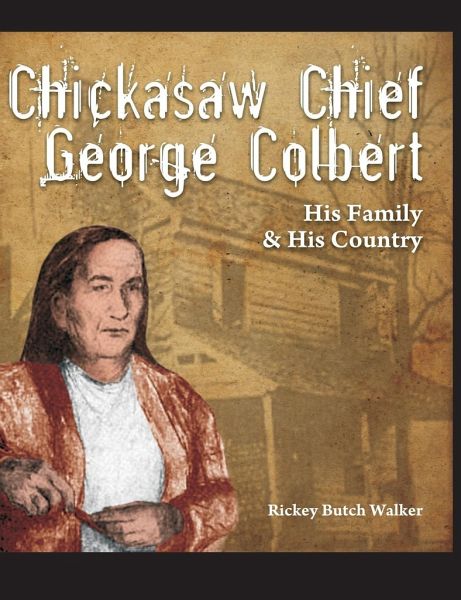
Chickasaw Chief George Colbert
His Family and His Country

PAYBACK Punkte
14 °P sammeln!
Very few people have lived a life comparable to that of Chickasaw Chief George Colbert; Butch Walker tells the story of this little known Celtic Indian man that lived a life worthy of a Hollywood movie in Chickasaw Chief George Colbert: His Family and His Country. This historic timepiece tells Colbert's story from a son of a Scots father and Chickasaw mother to a decorated military leader, successful ferry operator, plantation owner, businessman, and Chickasaw chief. George Colbert was a relatively unknown historical figure and decorated military hero that led the Chickasaws through Indian rem...
Very few people have lived a life comparable to that of Chickasaw Chief George Colbert; Butch Walker tells the story of this little known Celtic Indian man that lived a life worthy of a Hollywood movie in Chickasaw Chief George Colbert: His Family and His Country. This historic timepiece tells Colbert's story from a son of a Scots father and Chickasaw mother to a decorated military leader, successful ferry operator, plantation owner, businessman, and Chickasaw chief. George Colbert was a relatively unknown historical figure and decorated military hero that led the Chickasaws through Indian removal which was one of the darkest eras of American history. This man was trusted by the Indians, friends to the whites, and respected by local and national figures alike, including former presidents of the United States. Butch Walker has diligently researched the history, family, and overall historical significance of this Chickasaw Chief; Walker spent countless hours researching the life and legacy of George Colbert who was half Celtic (Scots) and half Indian (Chickasaw). George was never defined or limited by his blood quantum; he was a proven leader of the Chickasaw Nation. This book takes the reader from the birth of George's father, through the time of the French-Chickasaw War, beyond the Chickasaw Removal. The tale of the "Half-Blood Prince" of the 17th century is for anyone wanting to increase their knowledge of southeastern Indians, particularly the "Unconquered Unconquerable Chickasaws." The life of George Colbert appears to be taken right from the pages of a Hollywood script. Chickasaw Chief George Colbert: His Family and His Country is a must read for anyone wanting to learn more about the Chickasaw Colbert family.





